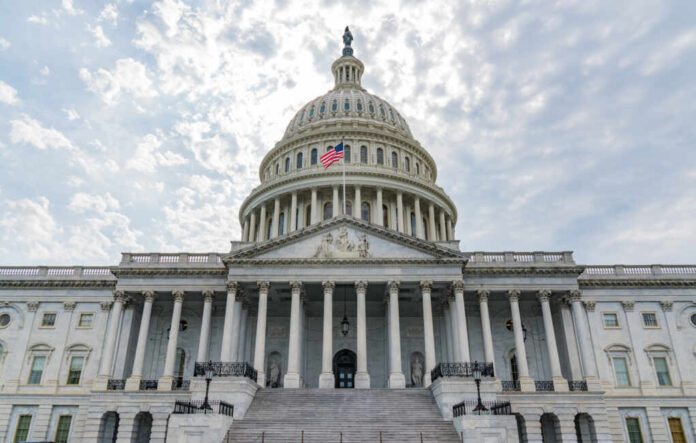
Members of Congress recently reached a compromise on topline annual spending, a step forward to avoid a potential government shutdown.
The deal for fiscal year 2024, which runs until September 2024, follows measures laid out in the debt limit package passed in 2023 through negotiations between then-House Speaker Kevin McCarthy (R-CA) and President Joe Biden, according to The Washington Times.
The latest spending deal includes nearly $900 billion for defense and about $800 billion for nondefense discretionary spending.
🚨 JUST IN: US Congress has reached an agreement on a $1.59 trillion top-line spending bill for 2024.
The spending spree continues. pic.twitter.com/tYflTpIjoW
— Proud Elephant 🇺🇸🦅 (@ProudElephantUS) January 7, 2024
To avoid a government shutdown, Congress must pass funding bills for several government agencies, including agriculture, Veterans Affairs, energy and water as well as the Department of Housing and Urban Development. The first deadline for avoiding a partial shutdown is Jan. 19, 2024, while the second is set for Feb. 2, 2024.
Although congressional leaders managed to pass an annual spending package, Congress must do more to ensure that the government remains in business.
Republicans and Democrats in Congress celebrated the bipartisan agreement in a statement. Democrats pointed out their successful efforts to avoid cutting funds from President Joe Biden’s Inflation Reduction Act.
“We have made clear to Speaker Mike Johnson that Democrats will not support including poison pill policy changes in any of the twelve appropriations bills put before the Congress,” a joint statement by Senate Majority Leader Chuck Schumer (D-NY) and House Democratic Leader Hakeem Jeffries (D-NY) read.
“Both sides will need to work together in a bipartisan way and avoid a costly and disruptive shutdown,” the statement continued.
House Speaker Mike Johnson (R-LA) sent a letter to his Republican colleagues, pointing out that the agreement honors the one struck in 2023 by McCarthy and Biden. The Louisiana Republican noted that they slashed $30 billion from what the Senate proposed in the deal.
Johnson said that although the cuts weren’t significant, the agreement would allow business in Congress to move forward.
“While these final spending levels will not satisfy everyone, and they do not cut as much spending as many of us would like,” Johnson said the deal will pave the way for business to continue in Congress.
Johnson faced severe criticism from some Republicans, specifically those in the House Freedom Caucus, who called the funding deal a “total failure.”













